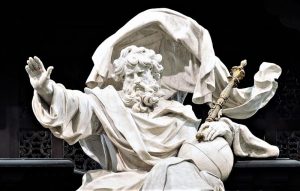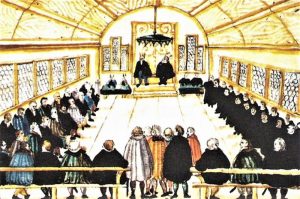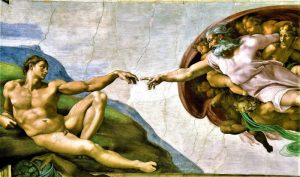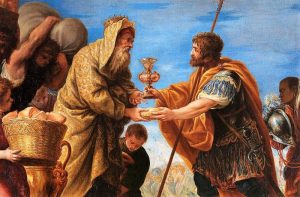Deism
Deism is an unorthodox religious attitude that found expression among a group of English writers who began with Edward Herbert in the first half of the 17th century and ended with Henry St. John, first viscount of Bolingbroke, in the middle of the 18th century. Subsequently, these writers inspired a similar religious attitude in Europe during the second half of the 18th century and in the colonial United States in the late 18th and early 19th centuries. In general, deism refers to what can be called natural religion, the acceptance of a certain body of religious knowledge that is innate in each person or that can be acquired through the use of reason and the rejection of religious knowledge when acquired through any revelation or the teaching of any church.
What is deism?
It is a current of philosophy which admits that through reasoning and experience God exists and is the creator of the universe but does not accept characteristic elements of religions with respect to divinity, such as revelations or cults.
Characteristics of the deism
The main characteristics of the deism are the following:
- Deism believes in God but does not believe in the religious practices practiced in churches.
- It recognizes that God created the universe, but it does not believe in his constantly intervention to orchestrate its destiny.
- They do not believe in miracles or the Most Holy Trinity.
- The manifestation of God occurs through a set of natural laws, which can be analyzed through science.
- They accept that it cannot be proved that God exists since the act of believing is ultimately merely a matter of faith.
- One can come closer to God through reflection.
- It does not support organized religion, religious institutions, or doctrines or precepts that come from supposedly sacred books.
- They guide their conduct from the rational thought and ethics of their consciences.
- They do not admit orders imposed by ecclesiastical leaders who claim to be messengers of God and communicators of His word.
Origin
Although an initial use of the term occurred in France in the 16th century, the subsequent emergence of doctrine on the Continent was stimulated by the translation and adaptation of English models. The peak of Deistic thinking occurred in England from 1689 to 1742, during a period in which there was relative religious expression freedom after the Glorious Revolution that ended the rule of James II and brought William III and Mary II to the throne. Deism took deep root in 18th-century Germany after it ceased to be a vital subject of controversy in England.
In the 19th and early 20th centuries, the word deism was used by some theologians to oppose theism. It was presented as the vision of those who reduced God’s role to a mere act of creation according to rational laws recognizable by man and held that, after the original act.
Classic deism
This branch is considered to be the oldest and closest definition to the “textbook” of deism. Most classical deists base their belief in God on reason, nature, and experience. Classical deists tend to take a balanced approach to believing that they are critical of revealed religion and that they are promoters of reason and deism. In this type of deism there is also a wide variety of beliefs, and not all classical deists agree with their beliefs or their approach to deism. Contemporary classical deism is probably best represented by the World Union of Deists.
Modern deism
Modern deism is not universally recognized as a distinct branch. This term was used by members of a group of websites that later became the Deist Alliance. Sites such as Dynamic Deism, Modern Deism, Positive Deism, Deist Information and PONDER promoted a positive and constructive form of deism in the early and mid-2000s to counter what they felt was too critical and negative approach.
Christian deism
It teaches that God exists, that He created the universe and all that it contains, but does not believe that God helps us, it is for this reason that it is not well seen from the Christian point of view, because it denies Christ as the means of redemption.
Representatives
Some of the most recognized deists in the world are the following:
- Aristotle
- Benito Juarez
- Benjamin Franklin
- Dmitri Mendeleyev
- Ethan Allen
- George Washington
- John Lennon
- Jean-Jacques Rousseau
- Montesquieu
- Neil Armstrong
- Plato
Importance
The idea of enlightenment, which gave rise to deism, requires that the ideas be supported or analyzed through God-given reason. This principle when applied to religion led to the belief that the existence of God can be confirmed by reason and not only by authority, and that God’s revelations are accessible to men. These ideas shaped the thoughts of leaders such as Thomas Jefferson and Benjamin Franklin and are also considered to have given them the will to challenge the British through declaration and rebel against the colonial establishment in order to gain American independence.
Phrases
Some phrases of deism are the following:
- God is transcendent but not personal.
- The cosmos is determined and closed.
- The human being is part of a great machine.
- The world is in a normal state.
- We can know the universe through study and reason.
- History linear and was already determined in creation.
How to cite this article?
Briceño V., Gabriela. (2019). Deism. Recovered on 3 January, 2025, de Euston96: https://www.euston96.com/en/deism/










